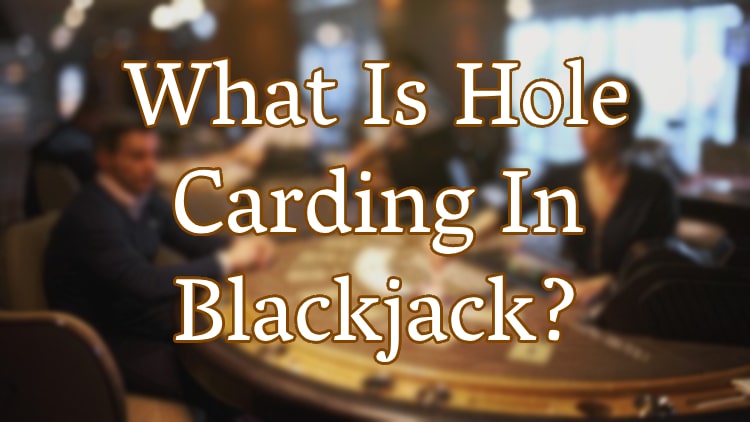
In the world of blackjack, there's a strategy known as hole carding that can potentially tilt the odds in your favour. But what exactly is it? In our latest blog, we'll dive into the depths of this intriguing tactic. From its basics, to its implications in the UK, we'll unravel the mysteries behind hole carding. Stay tuned to learn how this technique could potentially give you an edge at the tables. So, grab a seat, shuffle the deck, and let's explore the fascinating world of blackjack strategy together.
What Is The Blackjack Hole Carding Strategy?
The blackjack hole carding strategy involves gaining knowledge of the dealer's facedown card, often through subtle observation or unintentional revealing by the dealer.
In the UK, while not illegal, it's considered unethical by casinos and can potentially lead to expulsion or legal action. To execute this strategy, you need keen observation skills and quick thinking. By exploiting this information gap, players aim to make more informed decisions, potentially increasing their chances of winning.
However, it's crucial to understand the risks and consequences associated with this approach. Proceed with caution and always adhere to responsible gambling practices.
What Is The Hole Card In Blackjack?
In blackjack, the "hole card" refers to the dealer's facedown card, typically dealt to them after players have made their initial bets. It remains hidden until the dealer reveals it during their turn.
This card plays a crucial role in the game, as it influences players' decisions on whether to hit, stand, double down, or split their hand. Knowing the value of the hole card can significantly impact your strategy, particularly if you're employing techniques like hole carding.
However, remember that relying solely on this information without considering other factors can be risky and may not always guarantee success.
The Blackjack Hole Carding Strategy
In the UK, the blackjack hole carding strategy involves exploiting the opportunity to glimpse the dealer's facedown card, often through subtle observation or unintentional revealing by the dealer.
While not illegal, casinos frown upon this tactic and may take disciplinary action if caught. To employ this strategy effectively, you must possess sharp observation skills and quick decision-making abilities. By leveraging the information gained from the hole card, you aim to make more informed choices, potentially increasing your odds of winning.
However, it's essential to exercise caution and recognise the potential consequences associated with this approach. Always gamble responsibly and within your means.
Is Hole Carding Cheating?
In the UK, hole carding in blackjack is often viewed as a form of cheating by casinos. While it may not violate specific laws, casinos have the right to take action against players who employ this strategy.
Exploiting the opportunity to see the dealer's facedown card can give you an unfair advantage over the house, undermining the integrity of the game. Casinos invest significant resources in ensuring fair play and maintaining trust with their patrons. Therefore, engaging in hole carding goes against the principles of fair gaming and may potentially result in expulsion or legal repercussions. It's essential to approach gambling ethically and responsibly, respecting the rules set by casinos.
No Hole Card Rule Explained
In certain UK casinos, you may encounter the "no hole card" rule in blackjack. This rule means that the dealer does not receive a second card until players have completed their actions.
If the dealer subsequently draws a natural blackjack, players lose their initial bets before having the chance to make any decisions. It's a significant deviation from the standard rules and can impact your strategy.
Remember to familiarise yourself with the specific rules of each game variant before placing your bets. Understanding how the "no hole card" rule operates ensures you can adapt your gameplay accordingly and make informed decisions at the blackjack table.
